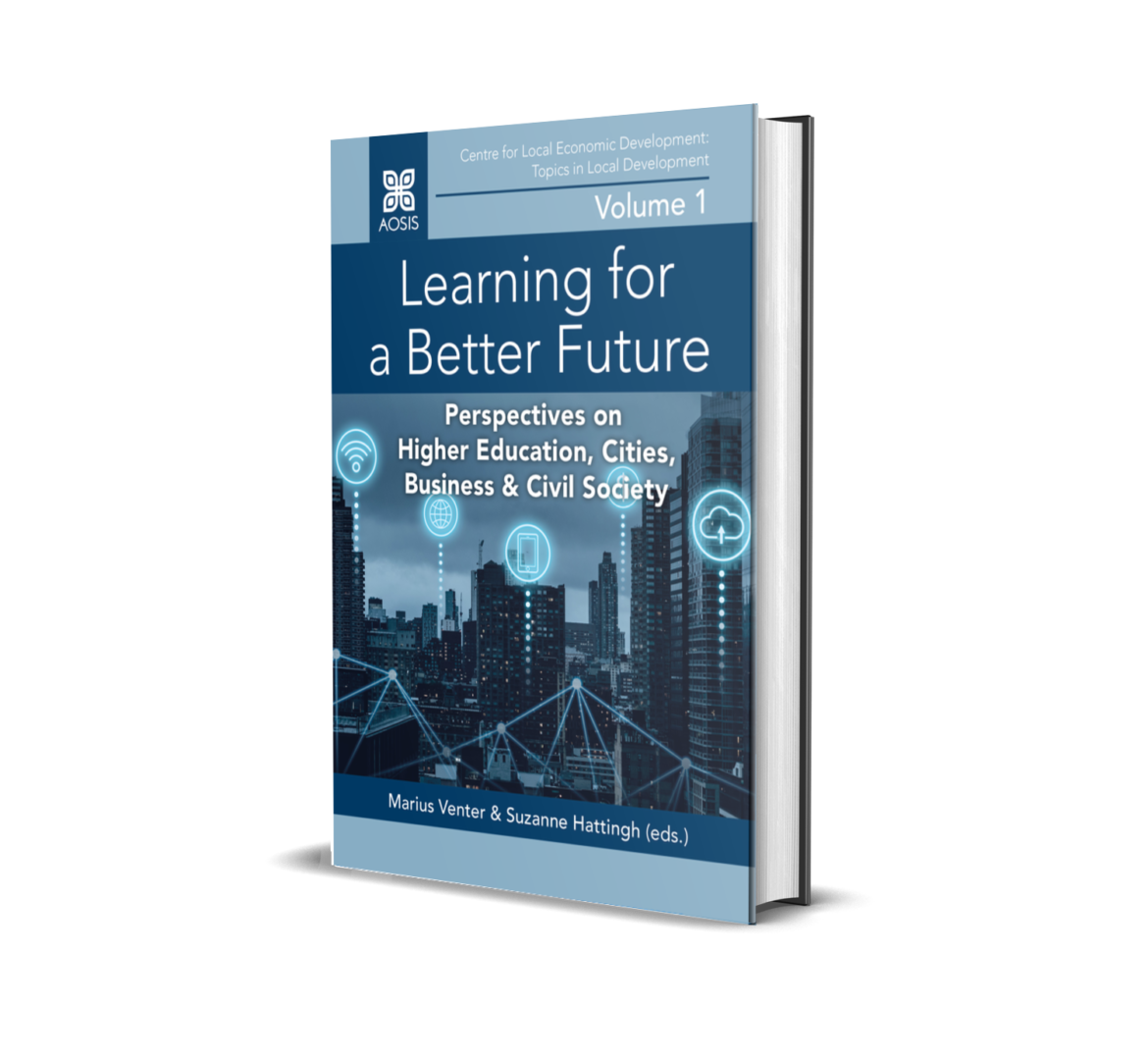Learning for a Better Future: Perspectives on Higher Education, Cities, Business & Civil Society is an open access book published by AOSIS Scholarly Books.
Various international scholars and associates of the PASCAL (Place, Social Capital and Learning Regions) International Observatory (Africa hub), under the auspices of the Centre for Local Economic Development (CENLED) based at the University of Johannesburg (UJ), have contributed chapters in this scholarly book. The book aims to demonstrate how a combination of globalisation, pandemics and the impact of innovation and technologies are driving towards a world in which traditional ideas are being challenged. The book carries forward a dual context and relevance: to South African social, educational, economic and cultural development, and the broader international context and action directed at how lifelong learning for all can be fostered in communities as a foundation for a just, human-centred, sustainable world. The distinctive contribution of this book to the production of a local body of knowledge lies in the symbiotic relationships between these objectives, so that South Africa could serve as a test case in working towards approaches that have a wider international significance.
Copyright (c) 2021 Marius Venter, Suzanne Hattingh (Volume editors)
This book displays a comprehensive acquaintance with the present state of higher education and adult education in South Africa. There are emerging policies and demands at universities, like the need to support and enhance holistic views of development, embracing social equality and cohesion, environmental sustainability, health and well-being, and cultural vitality. At the same time, digitalisation means renewing competence and developing the skills involved in learning how to learn. The portrait of higher education and adult education in these uncertain times does appear challenged, but with new resources for resilience. The role of higher education is to offer knowledge, problem-solving competencies and digital skills to African learners to stimulate greater resilience in South African communities and cities. In this context, new learning means the ability to operate collectively in a creative and problem-solving manner. This book shows that the role of higher education is vital both in creating a resilient society and in digital transformation. This will be achieved with the support and engagement of higher education institutions that leverage and teach new technologies and strategies to adapt to the new normal. This well-written book contributes useful theoretical and practical case studies of the learning context in an era of digital transformation.
Prof. Ilpo Laitinen, Department of Administrative Sciences, Faculty of Social Sciences, University of Lapland, Helsinki, Finland

